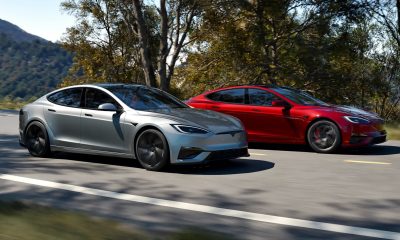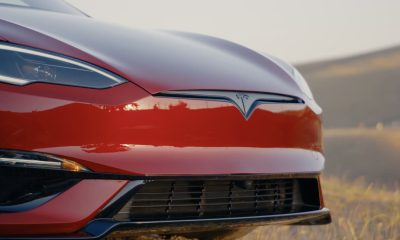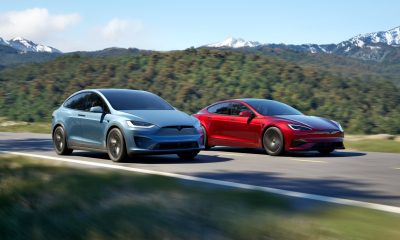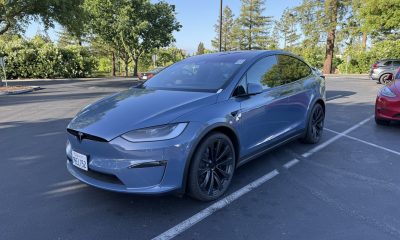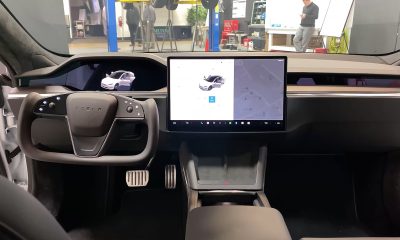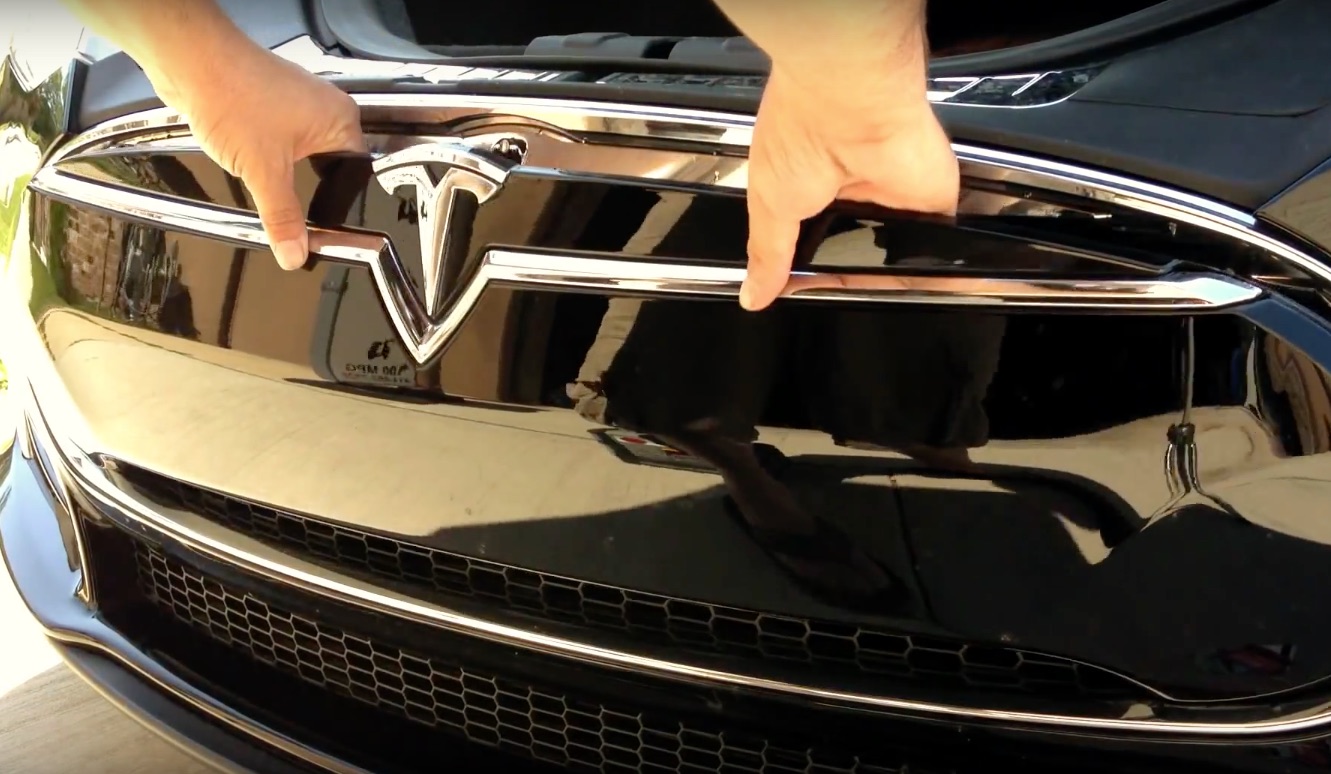
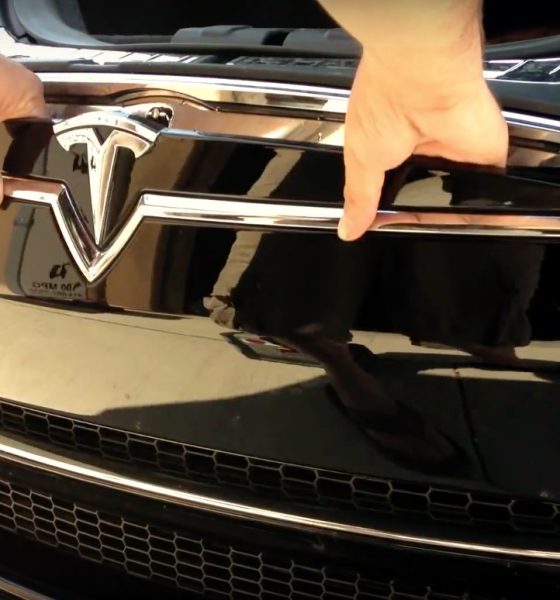
News
Why Tesla’s lead acid 12V battery needs to be lithium-ion based
It’s a prominent issue surrounding the electric vehicle market that the old-school lead acid battery just isn’t appropriate for new technology vehicles. Many users of electric vehicles, especially Tesla owners, have cited concerns with the poor performance of their 12V or low-voltage battery, oftentimes requiring annual replacement.
In contrast, a lead acid battery in a traditional internal combustion engine (ICE) vehicle generally has a 4 year life-cycle, but why?
RELATED: Tesla Model S 12V Lithium-Ion battery replacement (up to 70% lighter, 4x life)
First off, some of the most important factors to consider in longevity of a battery are “cycle-life”, environmental conditions, discharge/charge rates and calendar-life; cycle-life is how many times the battery can be drained and recharged in its life. Environmental conditions include temperature and humidity. Discharge/charge rates are the amperages going out of and into the battery respectively.
There are two major differences between the way an ICE vehicle uses its 12V battery and the way an EV uses its 12V battery:
“OFF” state discharge and cycling frequency
ICE Vehicle: generally has a very low 12V load while the vehicle is in the “off” state, often this load doesn’t exceed a few watts and doesn’t present a major challenge for the 12V battery to maintain.
Electric Vehicle: The 12V load while in the off-state is often much higher due to advanced computer systems that are running to maintain the high-voltage battery, keep vehicle “connected” (all EV have some remote access features), maintain charging and BMS (Battery Management System) communications, etc. In fact a Tesla Model S/X puts about 50 Watts of load on the 12V system when the vehicle is in the “off” state. 50 Watts equals about 4.5 Amps of discharge on the 12V battery, this drains the battery down relatively rapidly and requires the 12V battery be “recharged” by the high-voltage battery regularly, this usage pattern results in many cycles being placed on the battery.
“ON” state utilization and purpose
ICE Vehicle: The 12V battery is used to initiate the ICE (start the car) and is designed for putting out large amounts of current to accommodate this process. Once an ICE vehicle is in the “on” state, it relies on an alternator to power all of the 12V sub-systems and also maintain the voltage of the 12V battery.
Electric Vehicle: The 12V is subjected to (practically) no additional load while the vehicle is being turned “on”, and although most vehicles are designed with DC/DC converters (which act as alternators) it is often an engineering design choice to reduce load on the DC/DC converter by minimizing the frequency with which it is utilized. This also extends the driving range of the vehicle because none of the precious high-voltage battery capacity is being shunted to non-driving tasks. Due to this usage profile the 12V battery is subjected to relatively low discharge and recharge currents.
When you combine the high number of cycles and the low current requirements of the electric vehicle 12V battery system you arrive at a completely different battery need than that of an ICE vehicle. Lead Acid batteries are very good at high discharge and low cycle count life-styles, this is their bread and butter and this is where they last a long time and provide the most bang for the buck (cheap cost and decent product life-cycle), but they aren’t lasting in electric vehicles.
The electric vehicle 12V battery system is one that is best suited by a battery capable of tremendous cycle-life as the main design goal. The battery chemistry that suits this usage scenario best? Lithium! Lithium battery technology is specifically very good at being cycled many times and continuing to provide minimal capacity loss and degradation. This, along with reduced weight, is why these batteries are used for the high-voltage battery packs, cell-phones, laptops, medical equipment and cars where batteries are being cycled frequently and longevity is important.
Editor’s note: This post was submitted into our network by Tesla Model S owner Sean Scherer. Having suffered an unfortunate incident in his Model S that left him stranded because of a faulty 12V battery, Sherer began on a mission to create a lithium-ion based 12V battery solution that was not only more reliable than the traditional lead acid battery, but better suited for the demands of a Tesla Model S, Model X, and electric vehicles in general. He began BattMobile Batteries, who have made it their mission to improve adoption of electric vehicles by solving some of the small details that has been missed by EV manufacturers.
We’ve also included a video tutorial on how to replace the Model S 12V battery.
News
Tesla will let you bring back this removed Model 3 part for a price
It will cost $595 and is available on Tesla’s website. You will have to have a Model 3 on your Tesla account to purchase the stalk retrofit kit.
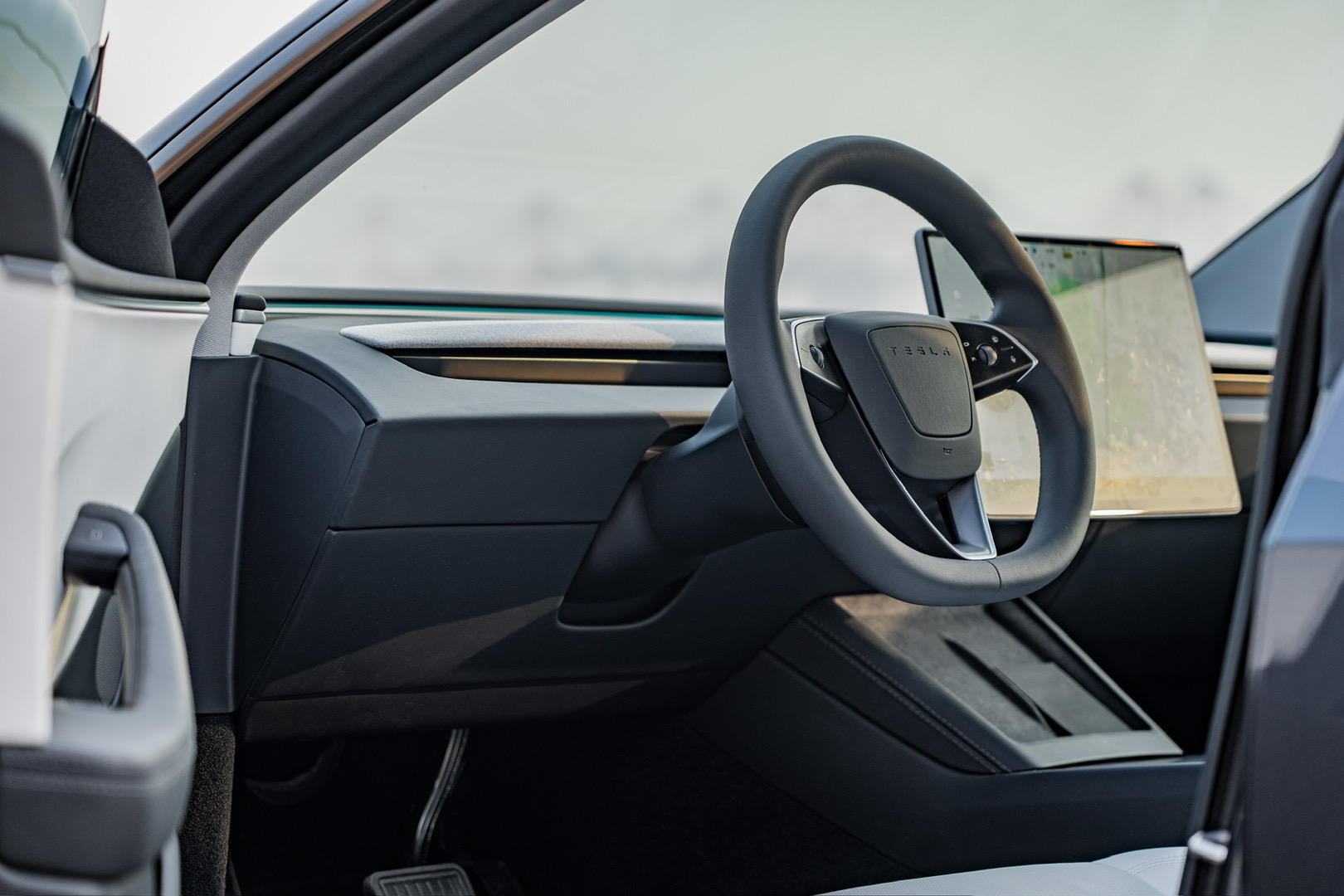
Tesla is now letting Model 3 owners in the United States bring back one part that the company decided to remove after it refreshed the all-electric sedan last year. Of course, you can do it for a price.
With the Model 3 “Highland” refresh that Tesla launched last year, one of the most monumental changes the company made was to ditch the turn signal stalk altogether. Instead, Tesla opted for turn signal buttons, which have been met with mixed reviews.
The change was widely regarded as Tesla preparing for more autonomous driving in its vehicles, especially as its interiors have gotten even more minimalistic.
The lack of a stalk in the new Model 3 was just another move the company made to adjust drivers and passengers to seeing less at the steering wheel column.
However, many drivers did not prefer the use of buttons and wanted the stalk reinstalled. Tesla allowed it in several regions, launching a retrofit kit. It has now made its way to the United States:
🚨 If you really want a stalk on your Tesla Model 3, you can pay $595 for the retrofit kit in the U.S. pic.twitter.com/dyhw4LyQX7
— TESLARATI (@Teslarati) October 8, 2025
It will cost $595 and is available on Tesla’s website. You will have to have a Model 3 on your Tesla account to purchase the stalk retrofit kit.
It is interesting to note that despite Tesla’s strategy to remove the stalk with the new Model 3, which was released in early 2024, the company did not choose to make the same move with the new Model Y.
The new Model Y launched in the United States in early 2025, and Tesla chose to install a stalk in this vehicle.
It seemed as if the turn signal buttons were too much of a polarizing feature, and although the company technically could have given orderers an option, it would not have been the most efficient thing for manufacturing.
News
Tesla Full Self-Driving v14.1 first impressions: Robotaxi-like features arrive
Tesla Full Self-Driving v14.1 is here, and we got to experience it for ourselves.
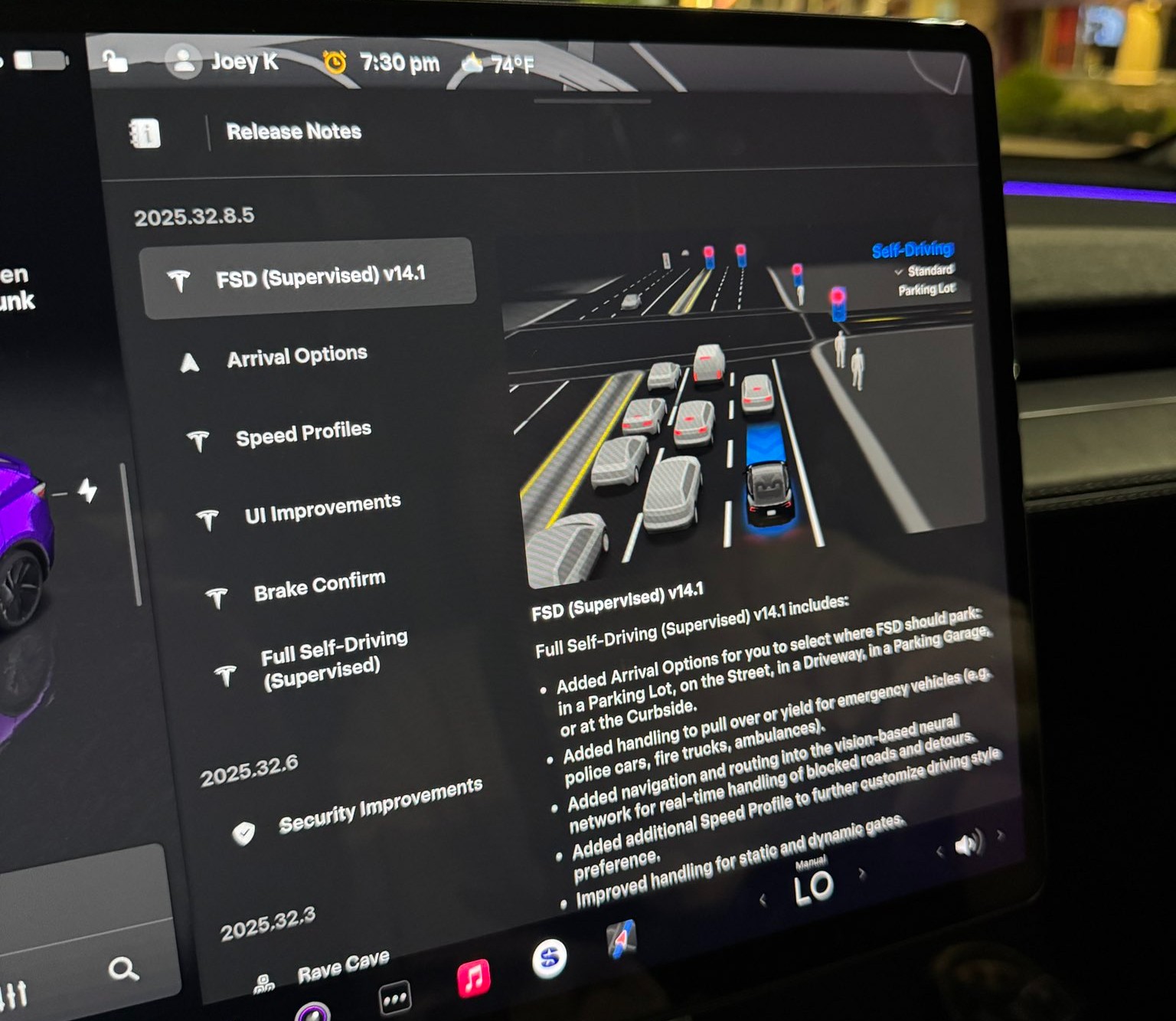
Tesla rolled out its Full Self-Driving v14.1 yesterday, its first public launch of its most robust and accurate FSD iteration yet. Luckily, I was able to get my hands on it through the Early Access Program.
The major changes in FSD v14.1 were revealed in the release notes, which outline several notable improvements in areas such as driving styles, parking, and overall navigation. Here’s what Tesla outlined fully in its release notes:
- Added Arrival Options for you to select where FSD should park: in a Parking Lot, on the Street, in a Driveway, in a Parking Garage, or at the Curbside.
- Added handling to pull over or yield for emergency vehicles (e.g. police cars, fire trucks, ambulances).
- Added navigation and routing into the vision-based neural network for real-time handling of blocked roads and detours.
- Added additional Speed Profile to further customize driving style preference.
- Improved handling for static and dynamic gates.
- Improved offsetting for road debris (e.g. tires, tree branches, boxes).
- Improve handling of several scenarios including: unprotected turns, lane changes, vehicle cut-ins, and school busses.
- Improved FSD’s ability to manage system faults and recover smoothly from degraded operation for enhanced reliability.
- Added alerting for residue build-up on interior windshield that may impact front camera visibility. If affected, visit Service for cleaning!
I wanted to try it for myself. My big must-dos were my complaints with v13.2.9, which included parking when arriving at a destination, Navigation when leaving a destination, and definitely a general improvement in the car traveling at an acceptable rate of speed, even when using the “Hurry” driving style.
Here’s what I noticed with the new Full Self-Driving v14.1:
Speed Profiles are More Realistic
I am driving on “Hurry” about 95% of the time when utilizing Full Self-Driving. In past versions, most notably v13.2.9, my Tesla would slowly reach the speed limit, and it would tend to hang out at about 1-2 MPH either above or below it.
My first observation with v14.1 was the vehicle’s tendency to get right up to speed and, since I was still on Hurry, drive slightly above the speed limit. It never got out of line; it traveled at speeds I would typically drive at manually.
I think this is a big improvement on its own, because I felt that I was pressing the accelerator too frequently in past FSD versions. Oftentimes, it just wasn’t going fast enough to justify the “Hurry” label; it felt more conservative and more like a student driver than anything.
Check it out:
🚨 Tesla Full Self-Driving v14.1 travels at more realistic speeds on local roads.
With 13.2.9, even on Hurry, it would hover the speed limit a little too much, often times traveling 1-2 MPH below or over.
It now travels at more realistic speeds. The removal of Max Speed and… pic.twitter.com/DPC0oBl3SC
— TESLARATI (@Teslarati) October 8, 2025
This was among my favorite improvements, and it was the first thing I noticed as the car navigated me to the Supercharger, where my next positive is.
Navigating into parking lots, self-parking at Supercharger
One of the changes noted in the Release Notes was the addition of Arrival Options, which allows the car to select the appropriate parking situation. Since I was going to charge, the car had already chosen “Charger” as the parking option.
Pulling into a gas station or convenience store, especially during work days, can be stressful, as they are usually congested and full of foot and vehicle traffic. In past FSD versions, I have noticed the car being slightly “jumpy” and even hesitant to proceed through the lot.
Driving through parking lots was a noticeable improvement. It seems as if the car is much more confident in making its way through, while still being aware and cautious enough to safely navigate to the Supercharger.
It then backed straight into a Supercharger stall, which was recently repaired and is once again active. I was actually upset it chose this specific stall because it had been inactive for a while. However, Tesla got this stall back up and running, the car chose it, and backed into the spot flawlessly:
🚨 Check out Tesla Full Self-Driving v14 choosing and backing into a Supercharger
After selecting this Supercharger at the beginning of my trip, my Tesla had already selected “Charger” as the arrival option pic.twitter.com/jqLNwQ9x0o
— TESLARATI (@Teslarati) October 8, 2025
This was super cool to experience, and I think it is a testament to how hard the Tesla AI team has worked. CEO Elon Musk recently stated that FSD would enable automatic parking at Superchargers, which was really awesome to experience firsthand.
I decided to leave the Supercharger and go to an auto parts store to pick up some interior cleaner and some microfiber towels. I love keeping my Tesla clean!
I also thought it would be a great opportunity to see how it would react to another parking lot, how it would navigate it, and let it choose a parking spot. It did it all flawlessly:
🚨 Here’s Tesla Full Self-Driving v14.1 navigating to a store, pulling in, choosing a parking spot, and backing right in
From v13.2.9, this is a drastic improvement. Typically, manual parking was required in past versions when arriving at retail locations. pic.twitter.com/kgFMu6dxnW
— TESLARATI (@Teslarati) October 8, 2025
I had zero complaints about everything here. All of it was done really well.
Making a choice after being caught in the middle of an intersection
I arrived at a tight intersection in Dallastown, PA, and what my car did next has catalyzed quite a conversation on X.
It proceeded out into the middle of the intersection as the light was green. It had to yield to oncoming traffic, and while waiting, the light turned yellow, then red.
Most people, including myself, would have turned right and proceeded through the intersection since the car was already past the line. However, FSD chose to back up and wait for the next light cycle, which I felt was also a more than acceptable option:
🚨 Super cool thing Tesla FSD v14.1 did: it proceeded thru this intersection to turn left, but the light had gone to red before the turn could be completed.
It put itself in reverse and backed up to the “Stop Here on Red” sign/line. Didn’t proceed at a red or impede others. pic.twitter.com/AKb1AI32fK
— TESLARATI (@Teslarati) October 8, 2025
There are some conflicting perspectives on what it chose to do here. Some said they would have proceeded and would want FSD to also proceed. I can agree with that perspective, but I also think it is not the worst thing in the world to back up. In Pennsylvania, I couldn’t find the exact law that says what is right or wrong. Instead, I did see that a left turn on red is only feasible when you’re going from a One-Way street to another One-Way.
I’m not totally sure what is “correct” here, but I think either option is fine. I have personally done both, and I’ve seen other drivers do both. I was more than fine with the car doing this, and I was honestly impressed that it did.
Navigated a busy grocery store lot, found suitable parking
This is not the busiest my local grocery store gets, but it was still congested enough for me to be impressed.
FSD decided to do one loop in the parking lot before it found a spot that it felt was good enough for me. I was perfectly fine with where it chose to park, and I thought it did a really great job. I was impressed with how stress-free I felt, as I have noted in the past that parking lots are definitely an area where Tesla needs to improve.
I was happy with its performance:
🚨 Here, @Tesla Full Self-Driving v14.1 searched for a parking space at the grocery store.
It did one loop, navigating safely through pedestrians and carts before it decided this spot was good enough for me.
This truly will take the stress out of parking at busy stores pic.twitter.com/73U3Bl7Odm
— TESLARATI (@Teslarati) October 8, 2025
Strange right turn signal as if it saw an emergency vehicle
This was the first bug I noticed with FSD v14.1. While traveling on a local road, it put the right turn signal on and approached the curb as if it was pulling over for an emergency vehicle or as if it was going to park on the street.
It then realized its mistake and proceeded:
Now for a couple bugs 🐞
Tesla FSD v14.1 put its right turn signal on as if it was going to pull over. It did move closer to curb, but then realized this wasn’t the correct maneuver for our route.
It proceeded without much issue pic.twitter.com/yoUoyzWMDM
— TESLARATI (@Teslarati) October 8, 2025
I’m not super sure what caused this, but I was a tad bit confused. There were no police cars, ambulances, or anyone with flashing lights to my rear. There was a dump truck on the other side of the road, and I almost felt like the way it navigated “around” that was probably what triggered it.
Navigation is still making strange decisions
I’ve written about navigation and my discontent with some of its decisions. It seems v14.1 didn’t resolve much of anything with navigation, and it did a couple of things wrong.
The first was that it tried to take the illogical and pointless path out of the Supercharger. I wrote about this a few days ago, as FSD tried to take my car the wrong way.
It did it again, but I overrode the decision, and it was all okay:
Bug 🐞 no. 3: I have this issue at this Supercharger and I talk about it frequently.
Navigation takes illogical and strange exit from Supercharger. I override, turning left instead of right, Nav adjusts and picks correct routing. Hoping this is resolved soon. pic.twitter.com/4VsCGHZbYW
— TESLARATI (@Teslarati) October 8, 2025
This is a minor issue, but it is still pretty frustrating. Hopefully, the navigation will learn after performing this adjustment after enough times.
The next navigation issue was more frustrating than the Supercharger one, especially considering it completely ignored the route. The navigation had the vehicle very clearly heading straight, but out of nowhere, the right turn signal went on. I overrode it, but the car still turned right, ignoring the navigation completely:
Bug 🐞 no. 2: Navigation clearly shows the route continuing straight through the traffic light. I noticed the right turn signal coming on, so I overrode it.
The car turned right anyway. I took over and drove manually until I was able to get to a stop so I could re-activate FSD pic.twitter.com/nxt4UlRqkK
— TESLARATI (@Teslarati) October 8, 2025
I ended up taking over here and driving until I could get to a stop sign.
Final Thoughts
I am really impressed with all of the changes Tesla made with FSD v14.1, and while there were a handful of bugs, things were tremendously better than v13.2.9.
News
Nvidia CEO Jensen Huang regrets not investing more in Elon Musk’s xAI
The CEO stated that Nvidia is already an investor in xAI, but he wished he had given the artificial intelligence startup more money.
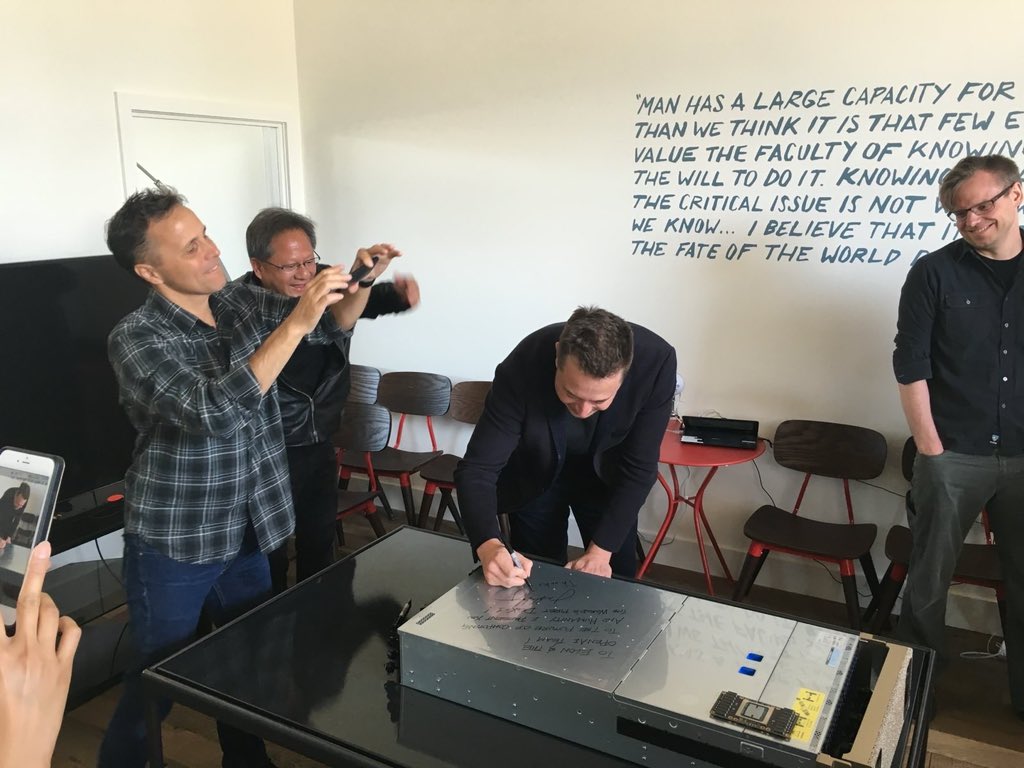
Nvidia CEO Jensen Huang revealed that one of his investment regrets is not putting more money into Elon Musk’s artificial intelligence startup, xAI.
Speaking in a CNBC interview, Huang said Nvidia is already an investor in xAI but wished he had given the artificial intelligence startup more money. This was due to Musk’s record of building transformative companies such as Tesla and SpaceX.
A new wave of transformative AI firms
Huang said he’s very excited about xAI’s latest financing round. He described Musk’s company as part of a powerful new generation of AI developers, alongside OpenAI and Anthropic. that are reshaping the computing landscape.
“I’m super excited about the financing opportunity they’re doing. The only regret I have about xAI, we’re an investor already, is that I didn’t give him more money. You know almost everything that Elon’s pat of, you really want to be part of as well,” the Nvidia CEO stated.
The CEO also clarified Nvidia’s investment in xAI, revealing that Elon Musk had offered the investment opportunity to the chipmaker. “He (Musk) gave us the opportunity to invest in xAI. I’m just delighted by that,” Huang stated.
AI investment boom
Huang contrasted today’s AI-driven economy with the early days of the internet. “Back then, all the internet companies combined were maybe $30 or $40 billion in size,” he said. “If you look at the hyperscalers now, that’s about $2.5 trillion of business already operating today.”
He also stated that the ongoing shift from CPU-based computing to GPU-powered generative AI represents a “multi-trillion-dollar buildout” that Nvidia is looking to support. Huang added that every Nvidia engineer now works with AI coding assistants such as Cursor, which he called his “favorite enterprise AI service,” and it has led to a major productivity boost across the company.
Watch Nvidia CEO Jensen Huang’s CNBC interview in the video below.
-
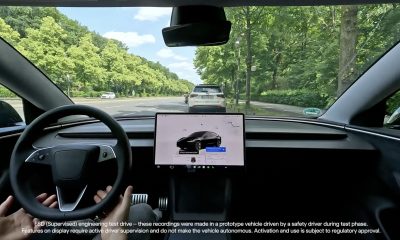
 Elon Musk2 weeks ago
Elon Musk2 weeks agoTesla FSD V14 set for early wide release next week: Elon Musk
-
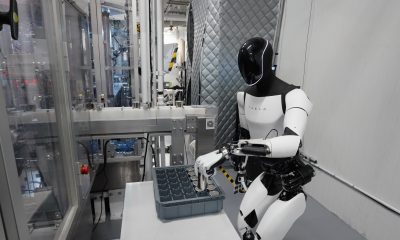
 News2 weeks ago
News2 weeks agoElon Musk gives update on Tesla Optimus progress
-
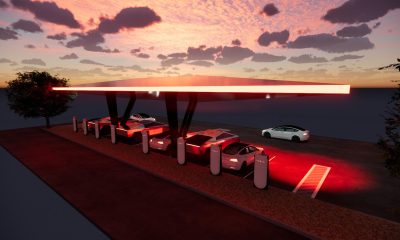
 News2 weeks ago
News2 weeks agoTesla has a new first with its Supercharger network
-
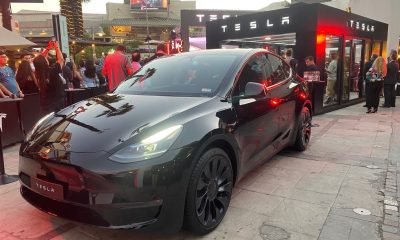
 News2 weeks ago
News2 weeks agoTesla job postings seem to show next surprise market entry
-
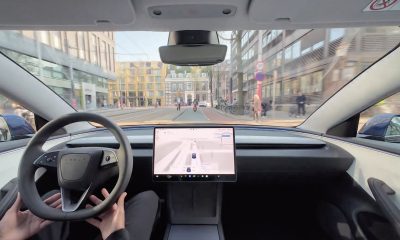
 Investor's Corner2 weeks ago
Investor's Corner2 weeks agoTesla gets new Street-high price target with high hopes for autonomy domination
-

 Lifestyle2 weeks ago
Lifestyle2 weeks ago500-mile test proves why Tesla Model Y still humiliates rivals in Europe
-
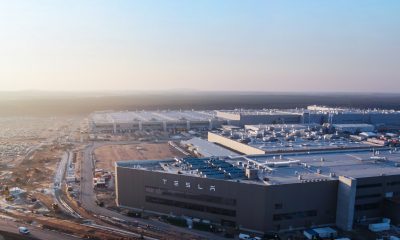
 News1 week ago
News1 week agoTesla Giga Berlin’s water consumption has achieved the unthinkable
-
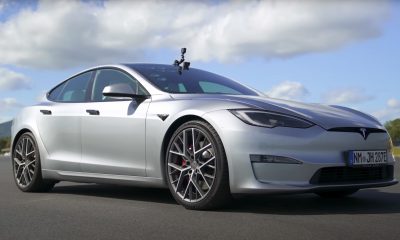
 Lifestyle2 weeks ago
Lifestyle2 weeks agoTesla Model S Plaid battles China’s 1500 hp monster Nurburgring monster, with surprising results


